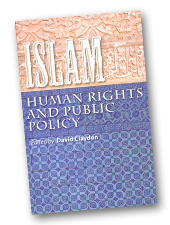On Good Friday the Tasmanian print media publish Easter reflections written by church leaders. The reflections themselves provide an interesting theological smorgasbord for BBQ conversation. (I cannot find them on the Mercury, Examiner or Advocate websites this Saturday!?- I guess you need to have purchased the newspaper.) My reflection is at www.anglicantas.org.au
Advertisements for worship services are placed in the newspapers and the Anglican collection was a veritable treasure trove – marvelous!
On Thursday lunchtime following the Cathedral Service of foot washing and reaffirmation of ordination vows, I walked to the Elizabeth Mall to participate in the launch of the combined churches’ Awakening Easter activities. The following day, Good Friday, the Mercury published a great photo of the children’s choir and an informative article about the Easter prayers collected from around Tasmania to be used at Good Friday prayer vigils. Two TV stations interviewed me but I did not see the TV News so do not know how they turned out. I was asked among other things about Good Friday football and whether Australians’ increasing chocolate consumption was a form of consolation or comfort in difficult times.
I am never too sure what the TV station editors will cut and patch from my interviews with other materials that they have gathered for a particular day or theme. Whenever possible I make myself available to the media. Given the demands of travelling throughout Tasmania I am not always readily available to the TV crews.
Of the different forms of media I have come to prefer ‘live to air’ radio; it is personal (people can hear emotion and intonation), direct and unedited (you live with your mistakes!).
After the Good Friday worship service at the Cathedral I spoke to a TV crew on the meaning of Good Friday. They also interviewed worshippers for their comments. On watching the TV news that evening the overall reporting on the Christian celebration was positive and I was delighted with the comments of the two worshippers. I was appalled, however, when the TV News cut my own comment to, “(Easter) is about relationships”. In the actual interview I had completed the idea, “(Easter) is about relationships, our relationship with God and our relationship with our neighbour”. I find poor reporting/editing like this misleading and unfair. It’s very frustrating.
Mind you, I should have been prepared for such problems. My Good Friday sermon tackled our human perversity and rebelliousness against God and its consequent destructive effect on human relationships. I will write up my currently ineligible sermon notes for posting. [Edit: these are now available]
On Saturday the front page of the Mercury newspaper cried out: ‘Church blasts good Friday footy’, with a photograph of a crowd enjoying their footy! What a contrast: pick the good blokes and the bad blokes?! How subtle! Clearly a critical comment on the churches. In wondered as I turned the newspaper pages (Yes, I persevered in my reading) what else I would find about the churches. Would there be anything in the newspaper about the profound Good Friday worship experiences of the Tasmanian Christian community? After all, on the previous day, this same newspaper had carried advertisements of many creative and engaging church services. Any news of these Tasmanians at worship? No. Not one word.
Ironically in the same newspaper under the heading, ‘Flawed Public Service Beyond Belief’, Sue Neales presents an excellent analysis of ‘LESSONS in good governance (which) come along all too infrequently in Tasmanian politics’. Her article concludes:
“If public trust in the pillars of government and governance in Tasmania is to be restored — as Mr Bartlett promised on his ascension to the top job last May — there is no time to delay.”
This call is very ‘Good Friday-ish’, if I may say so. That is, we have a problem and we need a solution, even redemption.
As the saying goes, “It’s Friday, but Sunday’s coming!”

